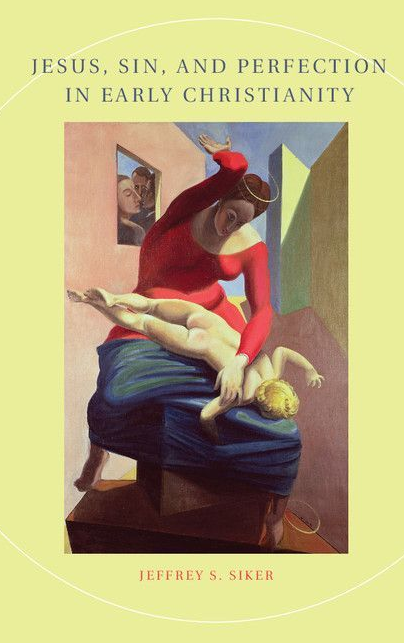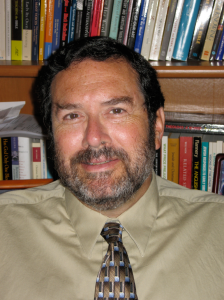
- This event has passed.
Jesus in Retrospect: From Sin to Perfection

How is it that Jesus came to be viewed by the earliest Christians as “sinless,” and what did this mean for them? In this presentation I will explore the process by which early Christianity claimed that Jesus was a perfectly sinless human being, setting the stage for his apotheosis as God. As we will see, everything hinges on the tragic death of Jesus on the cross, “a stumbling block to Jews and foolishness to Gentiles” (1 Corinthians 1:23). How were the early followers of Jesus to make sense of the death of Jesus when what they had expected was that Jesus would usher in the kingdom of God and commence a messianic age (Luke 24:21; Acts 1:6)? Once they came to believe that God had raised Jesus from the dead, the early Christian communities began a process of “retrospective theologizing,” namely, retelling the story of Jesus from the perspective of his death and resurrection, and then retrojecting these beliefs back onto his public ministry, his baptism, and his birth. Against charges that Jesus was “born in sin” (out of wedlock), the early Christians retorted that his was a perfect virgin birth. Against charges that Jesus repented from sin at his baptism by John, the early believers responded that this was a baptism of perfect righteousness. And against charges that Jesus violated laws and customs surrounding Jewish family, friends, and faith, — in short that “we know this man is a sinner” (John 9:24), the early Christians accused the Jewish leaders of being children of the devil (John 8:44), leading to centuries of Christian anti-semitism. Christians also co-opted Jewish festivals such as Yom Kippur and Passover to claim that Jesus was the “true bread from heaven” (John 6) and the ultimate
“lamb of God who takes away the sin of the world” (John 1:29). While we can understand the historical and theological processes by which Jesus came to be viewed as sinless, is such a view still necessary for contemporary Christianity?
 Jeffrey S. Siker is Professor of New Testament and Early Christianity at Loyola Marymount University (Los Angeles), where he has taught since 1987. His areas of expertise include early Jewish/Christian relations, the history of biblical interpretation, scripture & ethics, and the Bible and technology. In addition to dozens of articles, his most recent books include: Liquid Scripture: The Bible in a Digital World (Fortress, 2017); Jesus, Sin, and Perfection in Early Christianity
Jeffrey S. Siker is Professor of New Testament and Early Christianity at Loyola Marymount University (Los Angeles), where he has taught since 1987. His areas of expertise include early Jewish/Christian relations, the history of biblical interpretation, scripture & ethics, and the Bible and technology. In addition to dozens of articles, his most recent books include: Liquid Scripture: The Bible in a Digital World (Fortress, 2017); Jesus, Sin, and Perfection in Early Christianity
(Cambridge, 2015); Scripture & Ethics: 20th Century Portraits (Oxford, 2006); and Homosexuality in the Church: Both Sides of the Debate (Westminster/John Knox, 1994). He is currently completing a volume on Sin: New Testament Perspectives (forthcoming, Oxford, 2019).
This talk will be held in Kaplan Hall 365. Please RSVP below:

